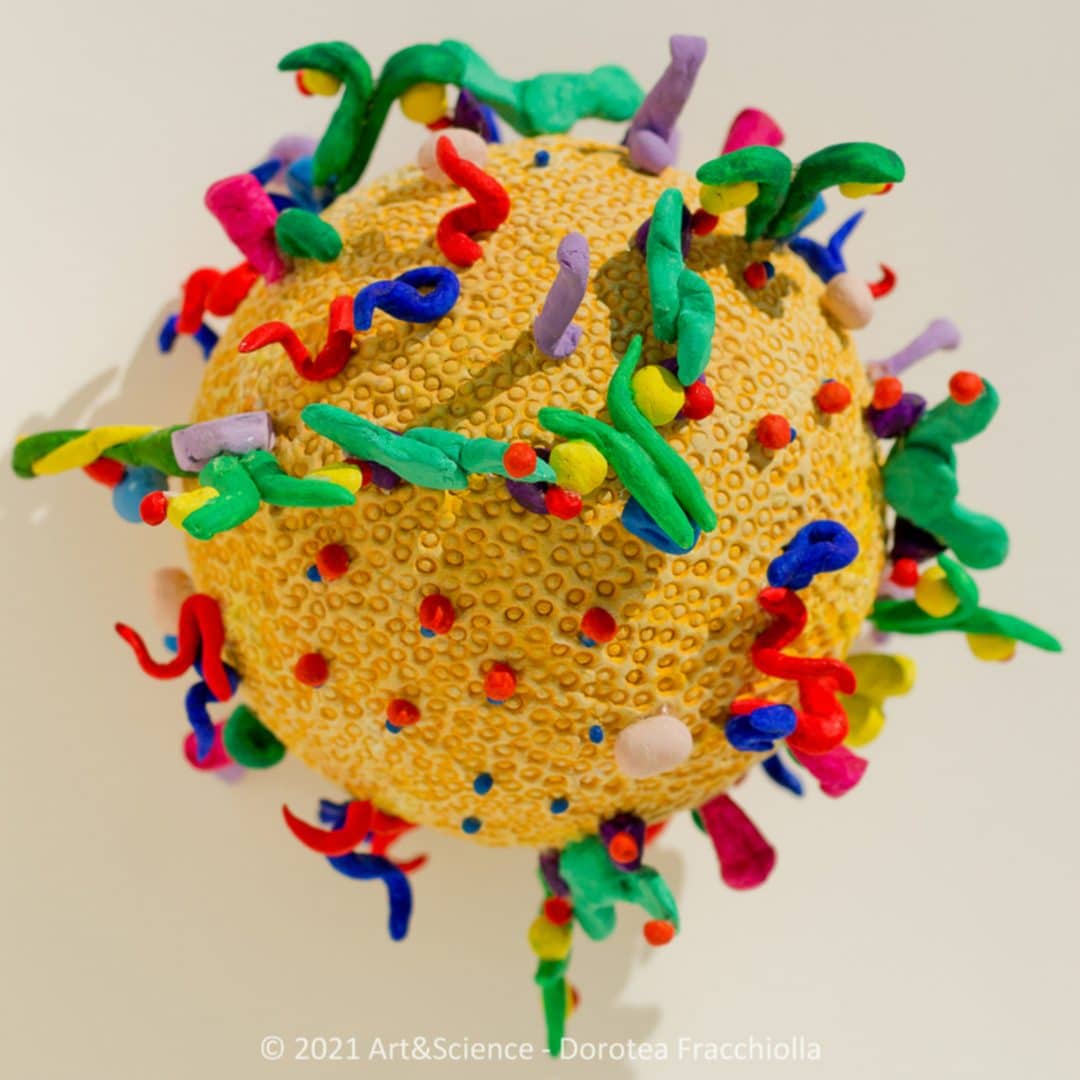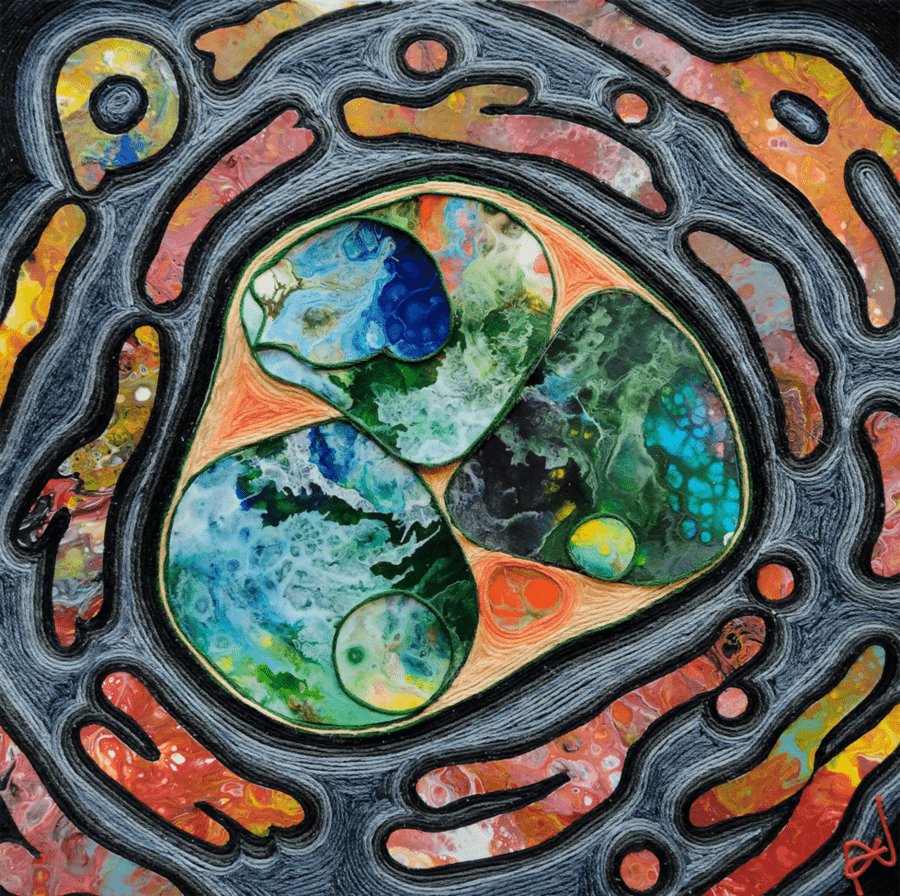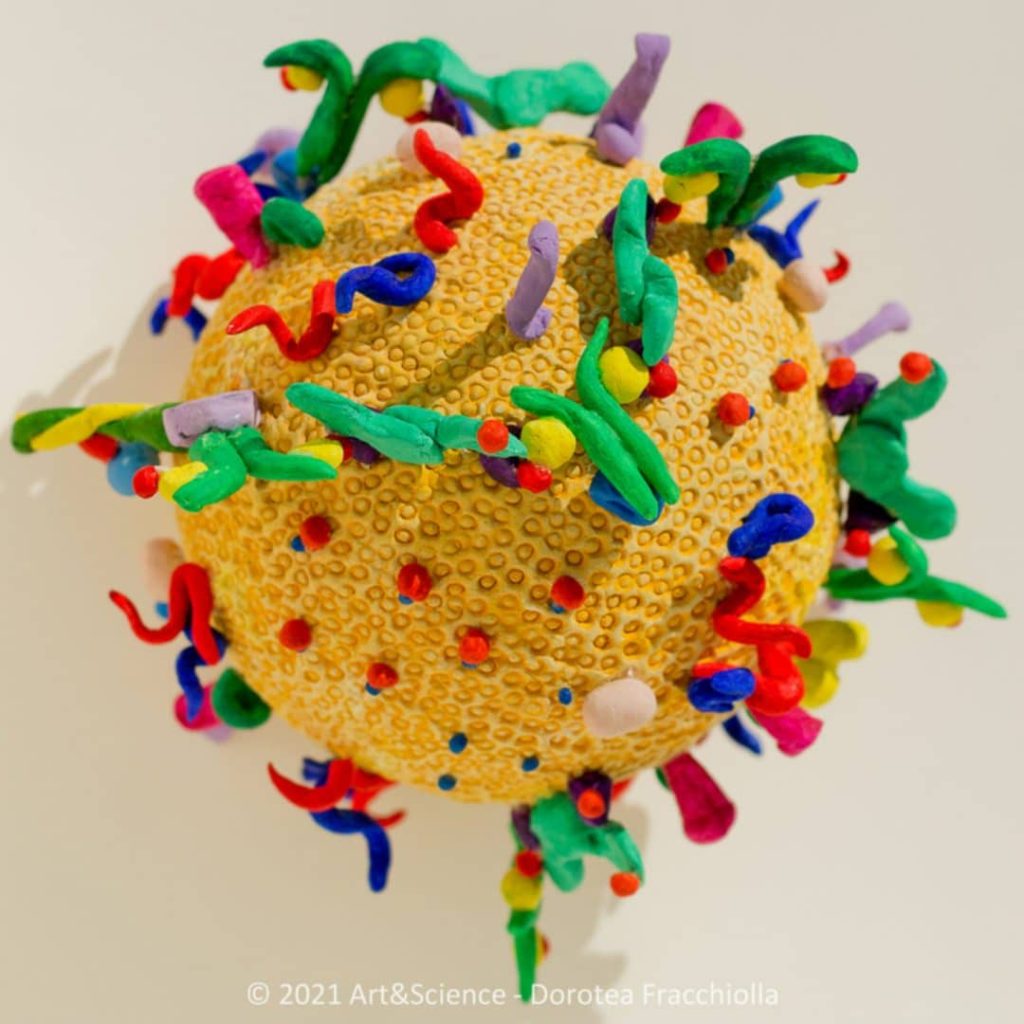
Ayelen Valko & Dorothea Fracchiolla
“AUTOPHAGIC LANDSCAPES: ON THE PARADOX OF SURVIVAL THROUGH SELF-DEGRADATION”
Vernissage: January 27th, 2023
The Art
Can you imagine self-degradation as a survival mechanism? That sounds like a pretty counterintuitive idea, right? However, this is exactly what happens in our cells under stressful conditions. Stress induces autophagy, a basic and essential mechanism of cell physiology through which cells exposed to stress stimuli (such as fasting) try to preserve themselves through a self-eating process. There is beauty in this dialectical contradiction, as it reflects a self-regulatory balance of life that can be extrapolated to other levels of biological organization, from single cells to entire ecosystems. Thus, this exhibition talks about the resilience of biological material in stressful situations. It proposes a visual journey from a macroscopic level of organization (entire organisms) toward the interior of a single cell, unveiling the infinite mysteries concealed within it. Even though they have very valuable aesthetic features, intracellular landscapes are not a common topic in art. Correcting this is the main aim of this exhibition. Both Ayelen Valko and Dorotea Fracchiolla are scientists–as well as artists–focused on autophagy research. Thus, through their artwork, they illustrate this mechanism from different points of view and magnification levels
The Science
In most cells, a quality control process called autophagy prevents the accumulation of damaged molecules and sub-cellular structures through self-digestion of cellular material. This essential biological process can act in a selective targeting specific elements or non-selective way, depending on the cell type and condition that triggers it. Autophagy is exacerbated under diverse stress conditions such as fasting, and is fundamental for cell survival, as evident when activation of this response is impaired. When autophagy regulation is compromised, several pathologies arise, including neurodegeneration, autoimmune and metabolic diseases as well as cancer. The complex cell biology that orchestrates autophagy involving membrane structures and proteins that interact with each other makes it particularly appealing for artistic creation, as this exhibition attempts to convey.
About the Artists
Ayelen Valko is an Argentine-born artist and scientist. Currently, she lives in Heidelberg (Germany) where she moved to join Sebastian Schuck’s laboratory at Heidelberg University as a postdoctoral fellow studying micro-autophagy in the budding yeast, Saccharomyces cerevisiae.
Ayelen studied Biology at the University of Buenos Aires (UBA) and did her PhD at the Leloir Institute back in Buenos Aires where she explored the molecular mechanisms that trigger starvation-induced macro-autophagy in the fruit fly, Drosophila melanogaster. This project required her to gain skills in different microscopic techniques such as confocal and electron microscopy which granted her access to the fascinating subcellular universe. Her experience in different model organisms (mainly yeasts and flies) allows her to appreciate biological processes from different perspectives.
For her, art has always been as important as science. She has been trained in different art techniques at the National University of Art in Argentina, after which she specialized in scientific and naturalistic illustration at the “Ernst Haeckel” Scientific Painting Laboratory, the “Adumbratio” Scientific Illustration Center, and “Aves Argentinas”. Her artworks have been exhibited in galleries and museums back in Argentina, among them the Quinquela Martin Museum and the Rómulo Raggio Foundation in Buenos Aires, and some of them were selected as cover images in the Journal of Cell Science, Autophagy Journal, Autophagy Reports, Bio-protocol, and Developmental Biology. She has also described some of these scientific paintings in a commentary article for the Autophagy Journal.

Dorotea Fracchiolla is an Italian-born scientist with a lifelong passion for visual arts and communication. Born in Bari she is currently co-directing the work of a multi-laboratories team interested in understanding the molecular basis of Parkinson’s disease. She graduated in Medical Biotechnology from the Catholic University of the Sacred Heart in Rome and the University of “Aldo Moro” in Bari. She conducted her Doctoral studies at the University of Vienna (AT) where she joined the lab of Prof. Sascha Martens to study selective autophagy in the budding yeast. Following the lab work, she used an in vitro reductionist approach to elucidate the molecular mechanisms of life. It was at this time that leveraging on the microscopic understanding of the cellular process of autophagy, Dorotea started to illustrate her discoveries in artistic yet scientific illustrations. Her style, inspired by the colorful landscapes of her land of origin Puglia, soon became appreciated by the general public who more easily was introduced to specialized knowledge via appealing artworks. She has been illustrating her and her peers’ science ever since. She works as a scientist and a freelance artist, as new scientific discoveries continue feeding her artistic intuition. Dorotea works by the motto “if you can draw it, you understood it to the very detail”. She enjoys collaborating with other scientists to illustrate their science and help them elaborate new questions and research avenues. Her work has been published as covers of the Autophagy and Molecular Cell Journals and is continuously used by scientists to communicate their work to professionals and the general public.
